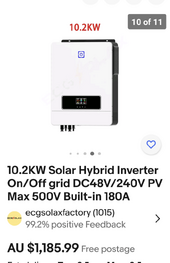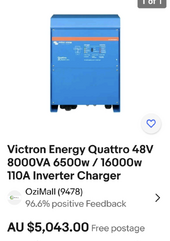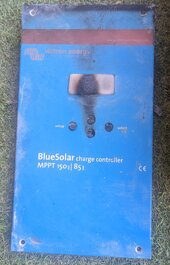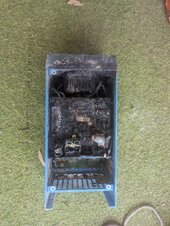bds70
New Member
As I move to redesigning my system to a 48v one, I have been looking at pure sine wave inverter chargers, I currently have 2 Victron Multiplus 12v which I will be selling.
The disparity between price of various Inverters is bewildering. I have attached two screenshots. According to the advertising and described capabilities both would do for my new system. (RV totally off grid)
What are members views on choosing a unit that will not break the bank but will be safe, deliver the required power and versatile to accept shore, generator, or solar power and charge batteries as required.
I understand that it is a subjective question but I am sure that I shall learn from your answers
Wherever you may be, please stay safe and have a peaceful holiday.
Thanks from Australia.
The disparity between price of various Inverters is bewildering. I have attached two screenshots. According to the advertising and described capabilities both would do for my new system. (RV totally off grid)
What are members views on choosing a unit that will not break the bank but will be safe, deliver the required power and versatile to accept shore, generator, or solar power and charge batteries as required.
I understand that it is a subjective question but I am sure that I shall learn from your answers
Wherever you may be, please stay safe and have a peaceful holiday.
Thanks from Australia.






